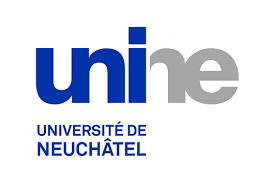More UniNE-UST collaboration on analytics, megadata and AI
The University of Neuchâtel and the Federal Statistical Office will strengthen their cooperation in the field of big data science and quantitative methods
The University of Neuchâtel (UniNE) and the Federal Statistical Office (FSO) are strengthening their cooperation in the field of data science and statistical methods.
In January, the two institutions signed the 2021-2024 collaboration agreement. This agreement was signed following the creation within the FSO of the new Division of Data Science and Statistical Methods and the establishment of a new chair in data science at UniNE. The goal is to foster research and development of concrete projects in the area of digitization.
Messaggio concernente la modifica della legge federale sulla innovazione (in Italian)
Decreto federale sul finanziamento delle attività di Innosuisse (in Italian)
Legge federale sulla promozione della ricerca e dell’innovazione (in Italian)
The FSO is currently developing a structure to meet the challenges posed by digitization in data science and statistical methods.
In fact, a new division has been created that will be active in this area. In the coming months, the establishment of a competence center for data science will make it possible to respond to the needs of the entire Confederation thanks to services ranging from consulting to training, from methodological assistance to the complete implementation of projects in this field.
For its part, the UniNE will establish a chair in data science with an emphasis on research in artificial intelligence.
The person who will occupy it will be in charge of developing scientific projects of international scope at the Institute of Computer Science at UniNE.

Projects to increase quality and efficiency
The collaboration between FSO and UniNE has been going on for about twenty years. In particular, it has enabled the Statistical Office to publish about ten doctoral theses and numerous articles in scientific journals with an editorial board.
For the FSO, this partnership has made it possible to establish a system for distributing the burden of surveys, both to companies and to individuals, and to introduce numerous optimizations, for example in employment and wage statistics.
Switzerland-Liechtenstein pact on scientific innovation
Bern, Zurich and Aargau focus on fiscal innovation
Swiss export industry relies on innovation
A new milestone has been reached with the launch of the pilot projects described on the FSO’s “experimental statistics” microsite. These innovations should help to further increase the efficiency of the techniques currently used.
For example, the project ADELE (“Arealstatistik Deep Learning”), which employs artificial intelligence techniques in the area of aerial image recognition for national area statistics, clearly shows the potential for automation and the resulting increase in productivity.

Increased attractiveness thanks to megadata
For the UniNE, the wide variety of topics dealt with by the FSO, their special features and above all access to real data (access via secure channels and on the basis of a data protection agreement to be signed for each project) is a source of inspiration that helps to attract a large number of researchers.
The staff working under this agreement, often doctoral and/or post-doctoral students, also see the results of their research directly applied in the statistical production of the FSO.
This is not the only partnership in which the FSO takes part. Indeed, in the field of data science, as well as in that of artificial intelligence, the Office also collaborates with other Swiss universities and universities of applied sciences, as well as with the two Federal Institutes of Technology and their “Swiss Data Science Center”.

The vision will be resolutely future-oriented
In order to intensify this collaboration, the FSO has launched an internal call for projects in the forward-looking field of data science and statistical methods.
With this call, the FSO intends to cover a wide range of topics and to provide an opportunity to develop cooperation in the framework of concrete projects such as the coding or processing of missing and/or anomalous data.







